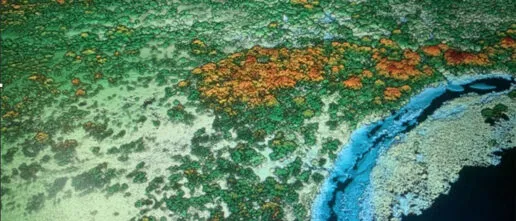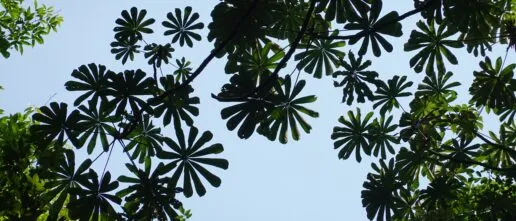Nature communications (2024)
Tropical forests cover large areas of equatorial Africa and play a substantial role in the global carbon cycle. However, there has been a lack of biometric measurements to understand the forests’ gross and net primary productivity (GPP, NPP) and their allocation. Here we present a detailed field assessment of the carbon budget of multiple forest sites in Africa, by monitoring 14 one-hectare plots along an aridity gradient in Ghana, West Africa. When compared with an equivalent aridity gradient in Amazonia, the studied West African forests generally had higher productivity and lower carbon use efficiency (CUE).
Related Research Themes

Society
Encompassing the governance and socio-cultural dimensions of nature recovery.

Scale and Technology
Tracking and evaluating nature recovery at both fine resolution and large spatial scales utilising state-of-the-art remote sensing, big data, and deep machine learning techniques.
Related Projects

Social ecological mapping for nature recovery
Developing social ecological maps for land use planning, investment and inclusive decision-making.

Mapping the resilience of tropical forests and savannas to global environmental change
Climate change effect on tropical forests

Bridging Field Data and Vegetation Models: Forest Carbon Cycling Across Scales
Vegetation models have been used by many organisations (including the IPCC) to predict climate change on a global scale, but are these models getting the current ecosystem right?
